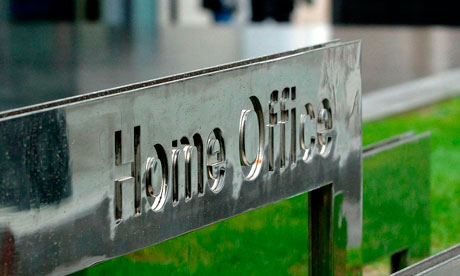'People will forgive you for being wrong, but they will never forgive you for being right - especially if events prove you right while proving them wrong.' Thomas Sowell
Search This Blog
Showing posts with label worry. Show all posts
Showing posts with label worry. Show all posts
Thursday, 26 August 2021
Monday, 20 February 2012
Immigration Song
Immigration Song
by Giffenman
Its immigration say the Tories
The cause of all our worries
So lets shut the door
Keep the peril from our shore
And the BNP can make our curries
The fault may lie with the bankers
Managers, footballers and rich wankers
Yet its the always the brownman
yellowman and other bogeyman
Who will be showered with hard conkers
So lets shut the door
Keep the peril from our shore
And the BNP can make our curries
Why does the UK government struggle to reach its net migration target?
Figures show net migration is at a record high. To understand why, we must break it down into its main components

Statistics out this week show that
250,000 more people came to the UK than left in the 12 months to June
2011. Photograph: Clara Molden/PA
They have pledged to cut it "from hundreds of thousands to tens of thousands" by 2015. But the latest statistics out this week show net migration remaining at a record high: in the 12 months to last June, 250,000 more people came to the UK than left. In other words, in its first 15 months, the government made no progress towards its target.
Why is cutting net migration so difficult? To answer this question, we need to break it down into its main components.
Emigration
This may seem like a surprising place to start, but – contrary to the narrative of anti-immigration campaigners, and Conservative ministers – it is emigration not immigration that has driven recent changes in net migration, with immigration remaining stable since 2004. One of the government's problems is that emigration remains low by recent standards.This week's figures show a small rise in emigration of UK nationals, up 12% to 143,000, but this is offset by a fall in emigration of foreign nationals. Fewer people seem to want to leave the UK for work-related reasons during a time of global economic downturn, and retirement and "lifestyle" emigration by British nationals – highly dependent on UK house prices and pensions – remains lower than before the financial crisis.
The government plans to make it harder for working migrants to stay longer than five years, and for overseas students to stay on and work after graduation: these changes should mean that in future years, more foreign nationals will start returning home, but are unlikely to make enough of a difference to help the government hit its target.
Work migration and the immigration 'cap'
Despite the rhetoric, the only kind of immigration which is actually "capped" is one sub-category of working migrants, those from outside the EU, and excluding those on "intra-company transfers", and certain other exceptions. This covers 20,000 out of total immigration of just under 600,000 – around 3%.Students
Overseas students are the largest category of migrants coming for a year or more, around 240,000. The government intends to reduce this number, and believes its policies are already starting to have an effect: the number of student visas fell by 4% in 2011. But it will be challenging to reduce the numbers enough to help meet the overall target.The Department for Business, Innovation and Skills has lobbied internally against more severe restrictions on student visas, concerned about the impact on higher education finances (given the cuts in central government funding) and about the UK's position in this lucrative global market, one of the few areas of potential growth and export revenue over the coming years.
Family
Immigration on the "family route" has been falling over recent years, but ministers need it to fall faster if they are to hit their target. They are planning to introduce a minimum income requirement, which could disqualify around half of the roughly 50,000 who currently come to the UK on this route. But if this goes ahead, it is highly likely that this policy will be challenged in the courts.European Union migration
The slight fall in the number of work visas granted to foreign nationals from outside the EU (down 7%) appears to be more than offset by an increase in the number of eastern Europeans coming to the UK to work, with eastern Europe continuing to contribute around 50,000 to the overall net migration figure.The government cannot control migration to and from the EU, and trends here are hard to predict, but if the performance and prospects of the UK economy decline relative to those EU countries which are crucial to migration, such as Poland, this could reduce net migration, as fewer Poles arrive and more return home; however, there could still be more immigration from other struggling economies like Greece.
Overall, the government finds itself in the perverse position that its best chance of hitting its net migration target is if the UK experiences a prolonged economic downturn. If instead, as we all hope, we start returning to growth late this year or early next, ministers will face a more difficult set of choices. The risk is that the net migration target will force them to attempt more drastic reductions in work and especially student migration, simply because those are the easiest categories to control, and despite the fact that they are also the most economically beneficial categories, and the kind of immigration which surveys suggest the public are least bothered about.
Sunday, 9 September 2007
Immigration
Its immigration say the Tories
The cause of all our worries
So lets shut the door
Keep the peril from our shore
And the BNP can make our curries
The fault may lie with the bankers
Managers, footballers and rich wankers
Yet its the always the brownman
yellowman and other bogeyman
Who will be showered with hard conkers
So lets shut the door
Keep the peril from our shore
And the BNP can make our curries
The cause of all our worries
So lets shut the door
Keep the peril from our shore
And the BNP can make our curries
The fault may lie with the bankers
Managers, footballers and rich wankers
Yet its the always the brownman
yellowman and other bogeyman
Who will be showered with hard conkers
So lets shut the door
Keep the peril from our shore
And the BNP can make our curries
Subscribe to:
Comments (Atom)
